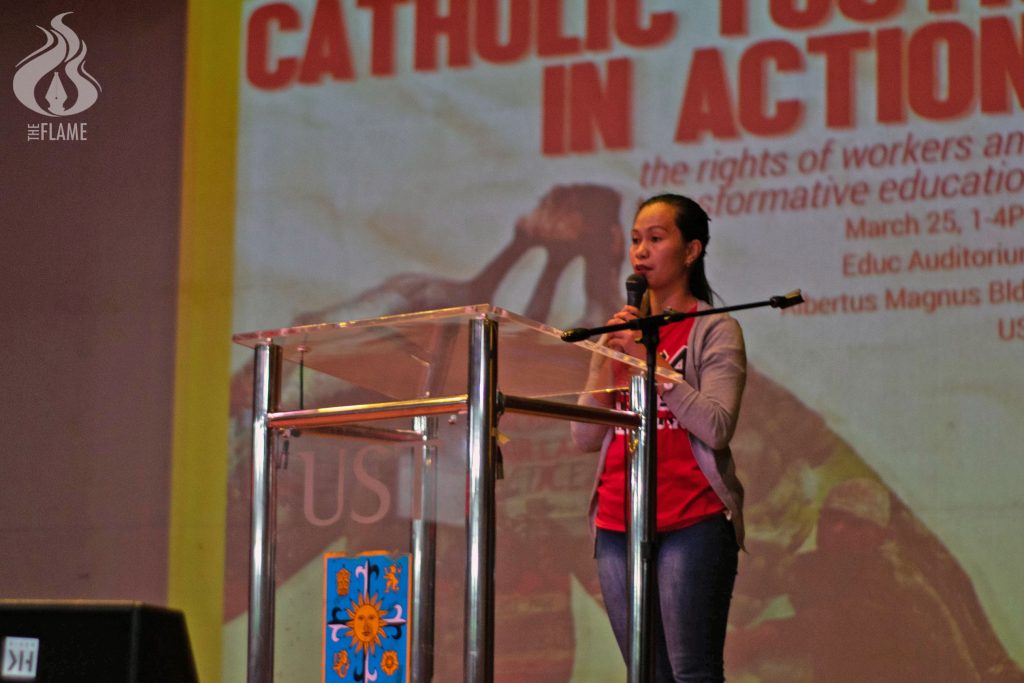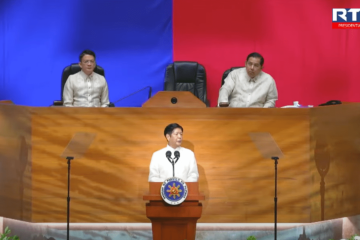By MA. LEANDREA A. TAMARES

WORKERS from Sumifru, a Japanese fresh fruits exporting corporation, recounted their struggles with contractualization and unhealthy working conditions in a forum co-hosted by the UST Sociological Society (USTSS) on Monday.
Plantation worker Maria Fe Juson said some of her peers have worked for Sumifru for more than 20 years but have not received benefits and only got their daily salaries increased to 365 pesos after staging a strike.
“Even na may desisyon na ‘yung Korte Suprema na kami na ‘yung kikilalanin na legitimate workers ng kumpanya, nag-file pa sila (management) ng motion for reconsideration,” she said.
End of contract or “endo” contractualization is an employment practice where workers are temporarily hired for less than six months for the employers to avoid fees that come with regularization.
Namasufa, a labor union of which Juson is a member, has filed a collective bargaining agreement to negotiate with the corporation.
The Sumifru workers from Compostela Valley, who have been staying in Manila since October, also suffered unhealthy working conditions, Juson added.
“Direkta namin hinahawakan ang saging kasi inii-spray-an ng chemicals, so wala kaming gloves, even mask, na ginagamit,” she said.
Assoc. Prof. Mark Anthony Abenir, a sociology professor and director of the UST Simbahayan Community Development Office, said Sumifru is only prolonging the legal battle.
“Nakikita natin ang legal battle [ay] pahaba nang pahaba. Parang ubusan ng pera, kung sino ang unang tumiklop […] ‘Yun ang ginagawa ng Sumifru,” he said.
Abenir said “endo” and labor-only contracts are examples of illegal contractualization that exploit legal loopholes by improperly disguising employment relationships.
“Hindi ibig sabihin na ‘pag sinabi na ng DOLE (Department of Labor and Employment) na regular na itong mga ito ay regular na sila sa kanilang mga trabaho. Regular sila in paper, kasi galing sa DOLE order, pero the companies can still resort to courts and keep on paying for motions for reconsideration,” he explained.
The revised Labor Code illegalizes labor-only contractualization but does not yet protect workers from other forms of the practice.
While ending all forms of contractualization through direct hiring is seen as a solution, Abenir said small-scale business owners still rely on legal contractualization, unlike big corporations that can afford direct hiring.
“Kailangan din nating tingnan ‘yung iba’t ibang employers,” he said
The forum titled “Catholic Youth in Action: The rights of workers and transformative education,” organized by USTSS with UP Praxis and Contend, was held at the Education Auditorium. F



